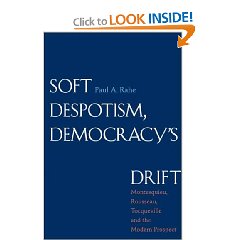According to several recent articles – “Senate Panel to Examine Sale of Diebold Voting Machine Division” http://www.wired.com/threatlevel/2009/10/diebold-antitrust-2/ and “Your electronic vote in the 2010 election has just been bought” http://www.truthout.org/092509I – the largest voting machine company in the country, Election Systems and Software (ES&S), has just bought out its most infamous competitor – Diebold's e-voting division, Premier Election Solutions. This leaves ES&S in control of a significant majority of the voting machines (68%) and potential votes (about 80%) in the United States. This is an extraordinary concentration of power.
This is not, by far, the only problem with the U.S. electoral system, but it is one of the most dangerous and most readily addressed. It is dangerous because it increases the possibilities for direct and untraceable manipulation of the votes in the vast majority of states. Such election fraud is accomplished by electronically changing a voter's vote, adding imaginary voters, or tweaking the total tally, real possibilities demonstrated by, among others, scientists at Princeton and Stanford ( http://bit.ly/m4uXo ) . And in recent U.S. elections, there were some non-random, inexplicable and unprecedented divergences between exit polls and election results. (Exit polls are often used by international observers to monitor fair elections.)
Phi Beta Iota: If democracy is to survive, local control of paper ballots with strong public oversight is a non-negotiable first step. The two-party tyranny is corrupt to the core; benefit of the doubt must be given to public concerns over validity rather than political claims of efficiency. Click on title above for complete discourse and all links.







